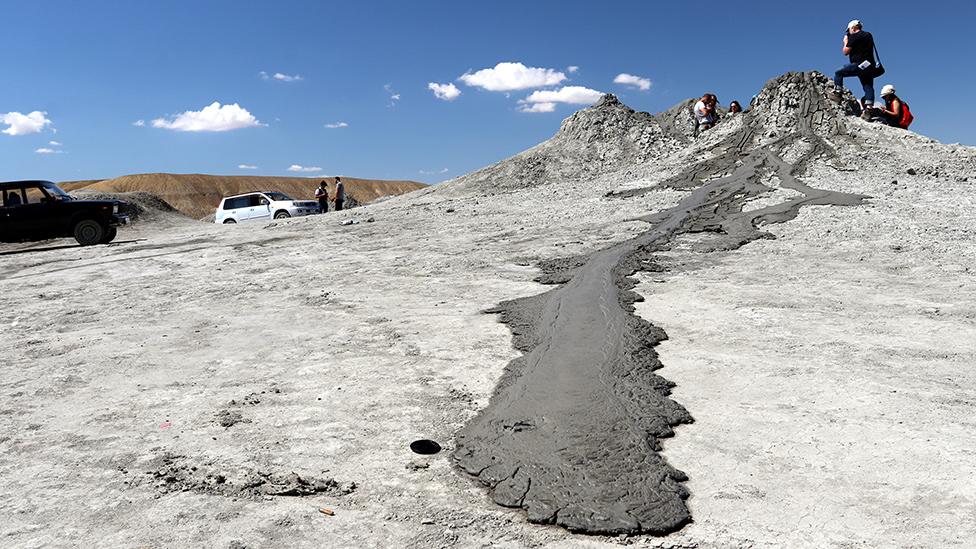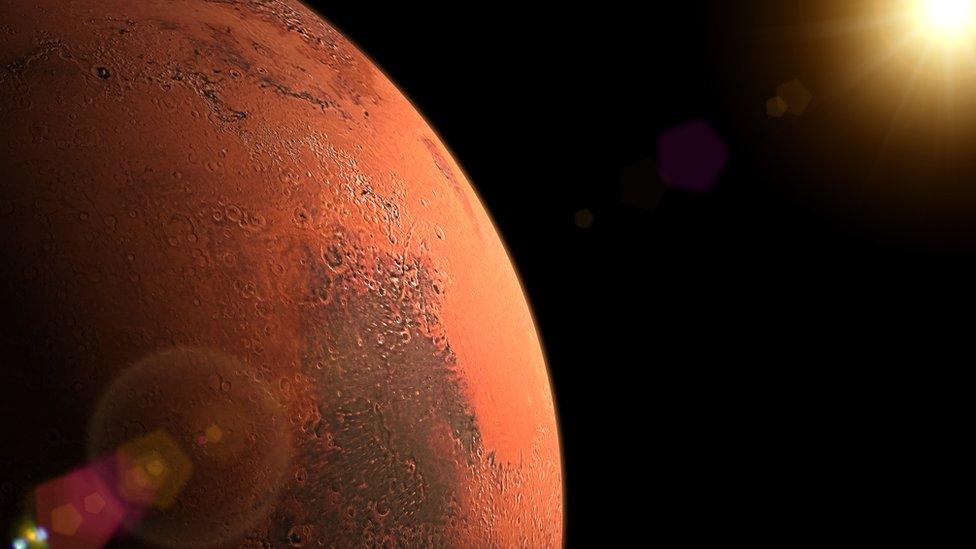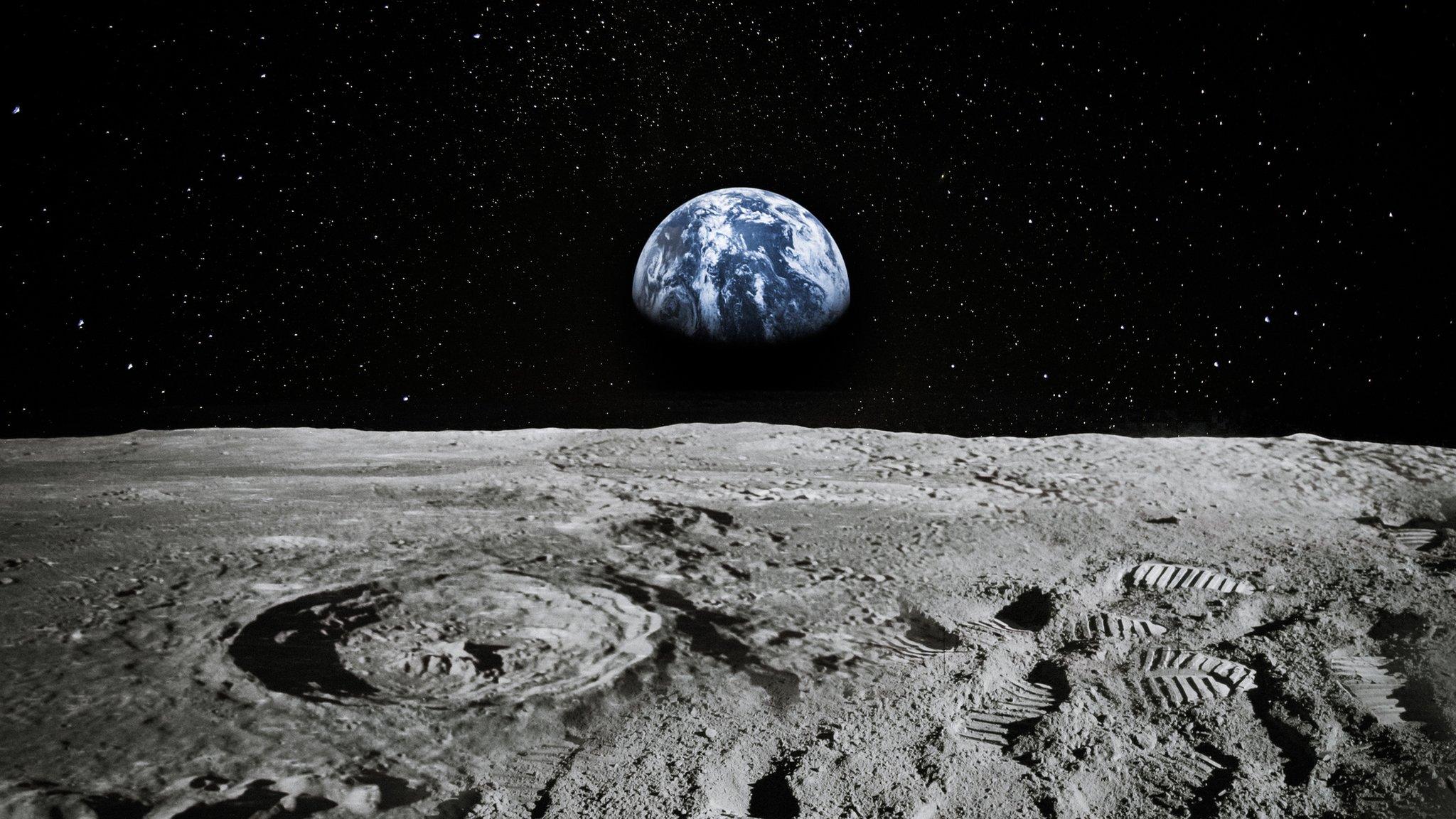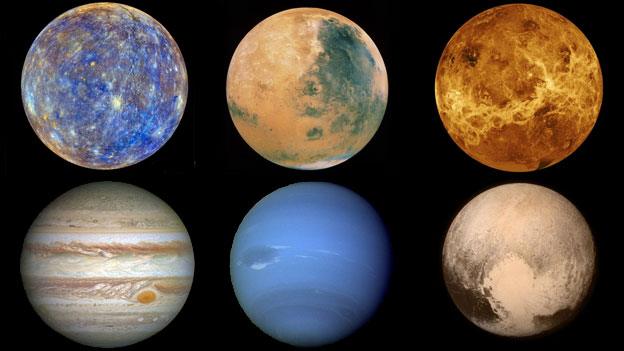Mars: Mud flows like 'boiling toothpaste' on Red Planet
- Published
- comments
WATCH: See how flowing mud behaves in simulated Mars conditions
Scientists have made an exciting - and slightly mucky - discovery about Mars by playing with mud.
Using a special chamber that can recreate the Martian environment, researchers wanted to see how volcanoes that spit out mud, instead of hot liquid rock called lava, might look.
Martian mud flows were seen to behave a bit like boiling toothpaste in experiments, and the fluid even began to bounce under certain conditions.
The extremely hot mud is similar to a certain type of lava known as "pahoehoe", which is seen at Hawaii's famous Kīlauea volcano.

Mud volcanoes, like this one in Azerbaijan, are common here on Earth
On Earth, these muddy mixes are smooth and runny like gravy.
But under "Martian conditions", the mud behaves very differently.
It all comes down to how the low pressure - 150 times less than the pressure of Earth's atmosphere - makes water rapidly evaporate, boil and ultimately freeze.

A possible mud flow on Mars seen from space but only a scientist on the ground would be able to know for sure
The experiment results could now make some investigations on Mars harder.
"You'll look at some features [from space] and you won't know for sure whether they are the result of lava flows or mud flows," says lead scientist Dr Petr Brož from the Czech Academy of Sciences' Institute of Geophysics.
"Without a geologist on the ground to hit them with a hammer, it will be hard to tell," he added.
The team published its first results in the journal Nature Geoscience.
- Published9 April 2020

- Published6 January 2020

- Published16 July 2015

